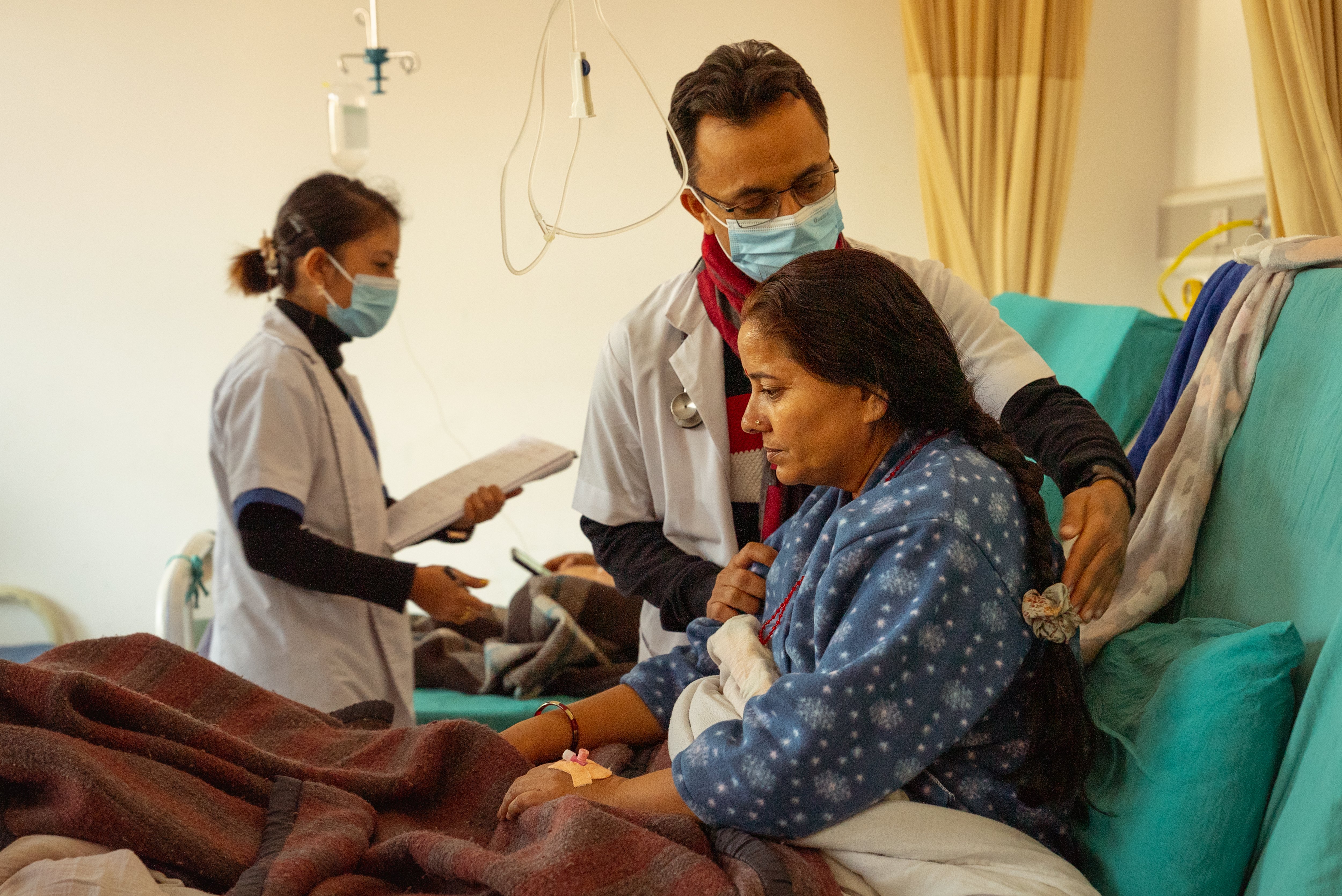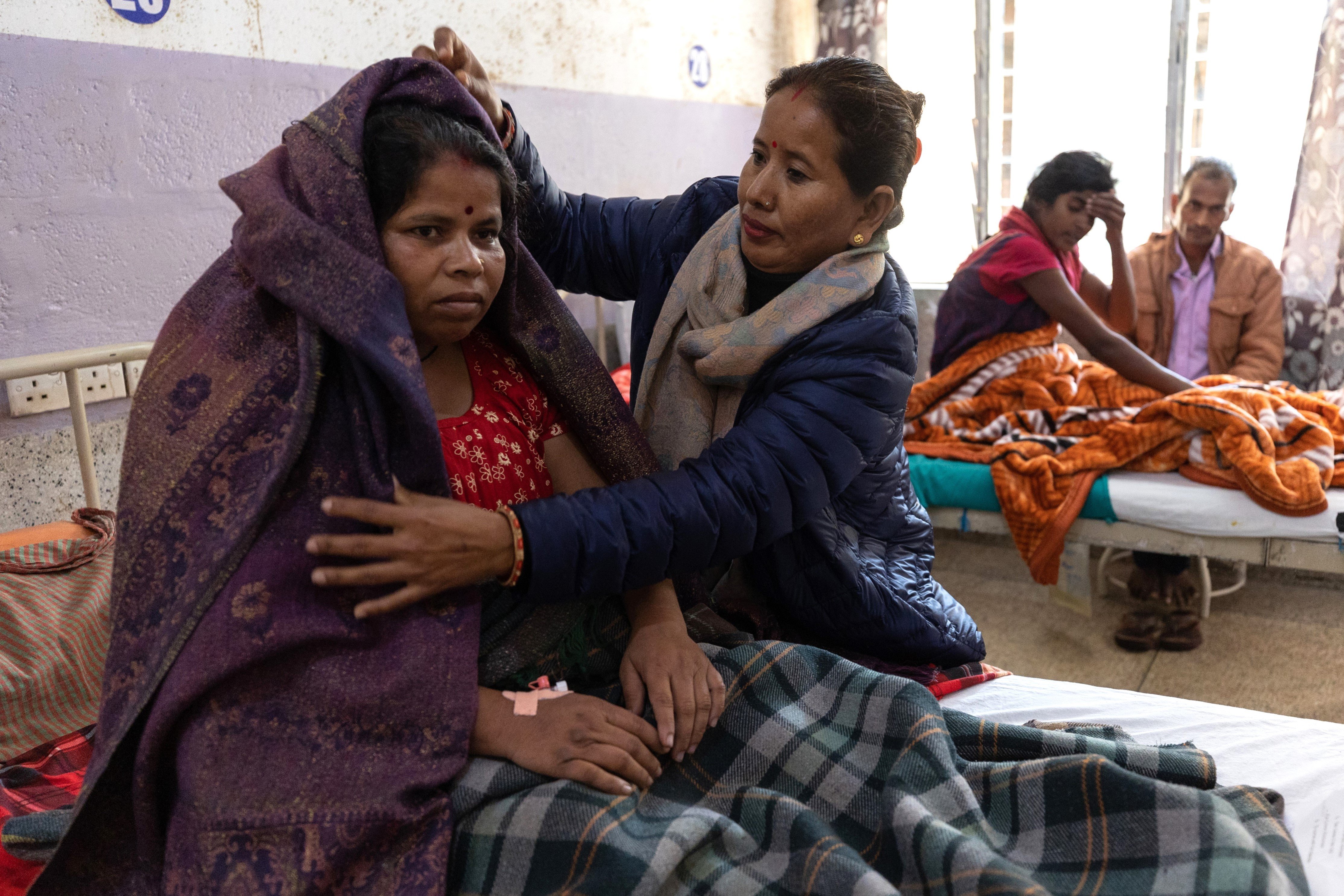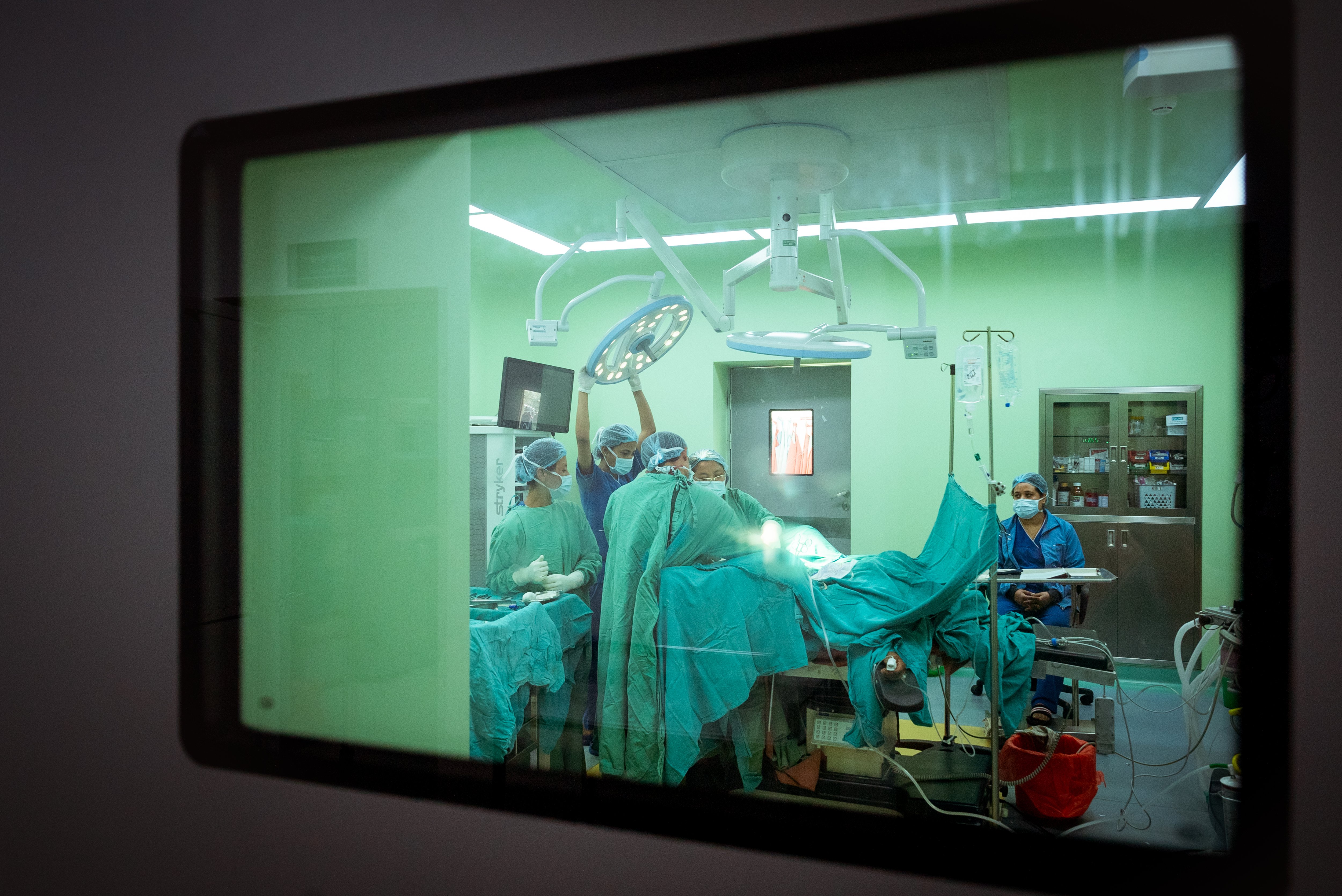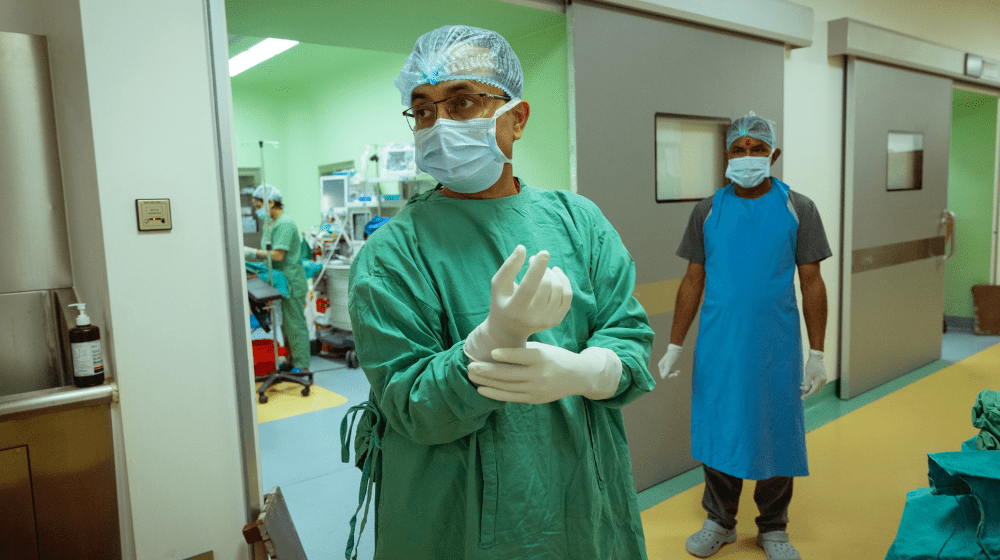Devi travelled almost five hours from the city of Katihar in eastern India to reach the specialist clinic at B.P. Koirala Institute of Health Sciences (BPKIHS) in eastern Nepal. Located in Dharan, a city at the foothills of the Himalayas, it is the only facility in the area successfully treating obstetric fistula – one of the most serious injuries of childbearing.
Married at 15, Devi gave birth a year after her nuptials and had been suffering from fistula symptoms – an uncontrolled leaking of bodily fluids – ever since. That was thirteen years ago. Three births and four unsuccessful operations later, she decided to seek specialist treatment at BPKIHS. “I heard the doctor heals everyone here, so I hope he will heal me too,” she says on a sunny December morning, awaiting her medical consultation.
Obstetric fistula is a tear between a woman’s vagina and rectum or bladder caused by complicated or prolonged and obstructed labour. A scourge in Nepal, where between 200 and 400 women develop fistula each year, the injury causes chronic incontinence of urine or faeces.
The condition prevents women and young girls from fully participating in society. Many cannot work, some cannot move. “It’s given me a lot of problems. Physical pain leads to mental stress. I go about my day, doing all my work taking care of my children but during monsoon it starts getting problematic again because I run out of dry clothes,” Devi recounts.
Though Devi’s family has supported her throughout, more often than not, women become outcasts and suffer in isolation.
Aside from social stigma and ensuing exclusion tied to the aftermath of fistula, women and girls also experience serious mental health issues. Often, due to long and obstructed labour, their children are stillborn, exacerbating their mental health issues further. “To bear with all this is very difficult and they are actually unable to recover from the mental and physical trauma they undergo,” says Dr Mohan Regmi, founder of the BPKIHS fistula clinic and the world’s top obstetric fistula surgeon.
Though in most cases fistula can be surgically repaired, access to treatment is hampered by lack of education, lack of trained professionals and Nepal’s geography. Mountains spread over 60% of the country, forcing some patients to travel hundreds of kilometres from remote areas to reach the clinic.
But just like maternal mortality, obstetric fistula is entirely preventable with the right health care system interventions and change in cultural attitudes towards and among women, according to Dr. Mohan.

The primary cause of obstetric fistula is child marriage, posits the surgeon, who ascribes the condition to lack of education in rural areas and cultural beliefs that marrying girls young will bring good fortune to their families.
“The girls, they don't have their own choice. They usually have to follow their parents and get married very early.”
Many of Dr. Mohan’s young patients hail from south-eastern Nepal, near the border with India, and like Devi, they too married young – despite the fact that the legal marriage age in Nepal is 21. Here, obstetric fistulas among girls are very common, he says, because of socio-economic factors like poverty and lack of access to education, malnutrition and marginalisation of women.
The girls are too young for childbirth, their bodies not fully developed, leading to “dreadful complications.” “Sometimes it's very emotional because I see girls the same age as my elder daughter with the problem and so it's like treating my own daughter,” says Dr. Mohan, who’s a father of two girls, aged six and thirteen.
Despite this, Dr. Mohan remains hopeful because a lot has changed since he began helping women suffering from fistula years ago. Obstetric fistula screenings are now part of the free basic healthcare package at health facilities across Nepal. Perhaps most importantly, the government has prioritised tackling the problem at village level, releasing a legion of health workers – also known as social mobilisers – who go house to house, identifying patients in need of help and referring them to Dr. Mohan’s clinic.
Health workers also educate community members, demystifying obstetric fistula and advocating for a change in attidutes towards it and child marriage – which isn’t always easy. “It’s much more difficult than I imagined to make people in the community understand. Even those who understood didn’t want to make changes,” says Sunita Chaudhary, health worker and Dr. Mohan’s right-hand woman.
Without social mobilisers like Sunita, many women would be suffering in silence. “I have been working like a bridge the same way you need a bridge to get from one side to another,” she says. “Many people flee when they see a hospital bed. They get scared. They feel like people will be disgusted by them. That is what I support them through.”

One such patient is 25-year-old Sarita from Takuwa town in southern Nepal, near the border with India, where verdant fields stretch as far as the eye can see. A mother of two, Sarita was referred to BPKIHS after she developed obstetric fistula following a recent miscarriage.
“It was incredibly difficult when I faced the leakage issue. I was confined to the bed, unable to perform any work. The entire family was struggling with the challenges of poverty and my health issues simultaneously,” she recounts from her home one December afternoon, weeks after a successful surgery.
Her experience at the clinic has changed Sarita’s life in more ways than one. While she's thrilled to be back at home with her daughters, husband and in-laws, easing into her old routine, Sarita has also become very outspoken in her community.
“It's crucial for women to communicate openly with their families about any health concerns, especially related to complications like mine. Seeking treatment in reputable hospitals…can make a significant difference. I want other women to know that there is hope and help available.”



